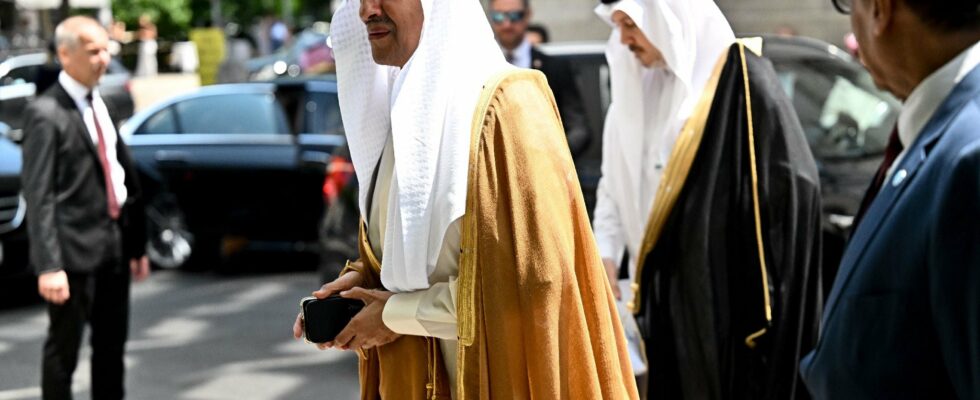The deal is sealed. At the end of a meeting held for the first time by videoconference, the member countries of OPEC+ agreed this Sunday, June 2, to continue their current production cuts until the end of 2025 to support oil prices, undermined by numerous economic and geopolitical uncertainties.
On the one hand, the Organization of the Petroleum Exporting Countries and its allies (OPEC+) will “extend the level of crude oil production” of its members from January 1, 2025 to December 31, 2025, the alliance said in a statement. On the other hand, eight members of the group will extend their voluntary reductions in oil production for a few months, before gradually eliminating them.
These are cuts of 2.2 million barrels per day, which mainly concern Saudi Arabia, the world’s leading exporter, but also Russia, Iraq, the United Arab Emirates, Kuwait, as well as Kazakhstan, Algeria and Oman. Extended until September 2024, these production cuts will be gradually stopped by September 2025. They are in addition to previous voluntary cuts of 1.65 barrels per day, announced last year, and extended until September 2024. end of 2025, specifies the press release. As a result, OPEC+ currently keeps almost six million barrels of oil underground. By 2025, OPEC+ will have the challenge of reopening the floodgates without flooding the market and causing prices to collapse.
This strategy, begun at the end of 2022 in the face of falling prices, aims to adapt to falling global demand and take advantage of the scarcity of supply to increase prices. A barrel of oil today costs around $80, a price considered insufficient by several members of OPEC+ to balance their budget. Saudi Arabia, for example, needs an oil price of at least $95 a barrel. But since November, the group has only succeeded in stabilizing prices and has not managed to revive them.
Avoid tension
OPEC + has also agreed to increase the production target of the United Arab Emirates, to the tune of 300,000 barrels per day in 2025. Abu Dhabi is one of the countries which have agreed to tighten the valves, at the call from Saudi Arabia, which wanted to share the burden of the cuts. This quota increase therefore allows it to keep facade cuts, while increasing its volumes.
The examination of the quotas of the entire group, for its part, is postponed until the end of 2025 to avoid tensions between the countries. This question indeed provokes strong discord: certain countries holding significant oil production reserves or others wishing to pump more are reluctant to do without these very lucrative oil revenues. Angola left the cartel with a bang at the end of 2023, in disagreement with the production target assigned to it.
This decision comes in an unstable environment, marked by competition from American oil, tensions in the Middle East and above all demand which has been at half mast for several years. The International Energy Agency (IEA) is even less optimistic than OPEC and has revised downwards its estimates for 2024.
